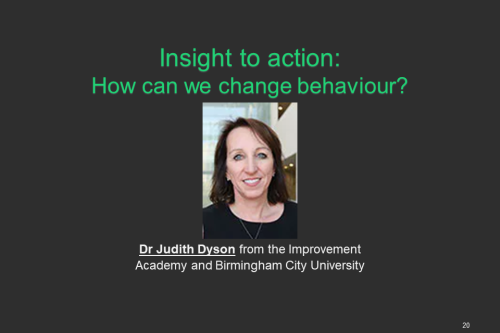
INSIGHT 2021: Insight to Action. How can we change behaviour?
So we’ve gathered all the data and evidence, we understand the problem and we know what we think the best solution is…so how do we act
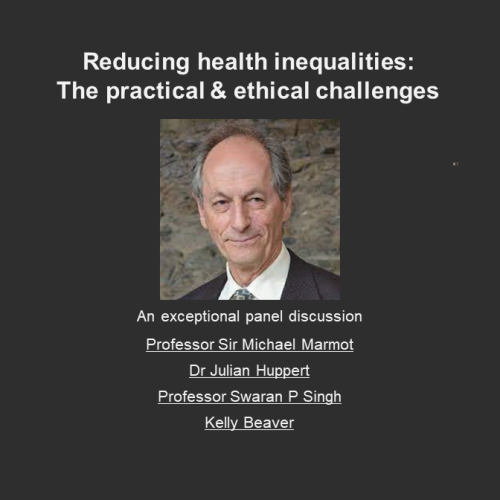
INSIGHT 2021: Reducing health inequalities - the practical & ethical challenges
This session debated the ethical challenges around addressing health inequalities.
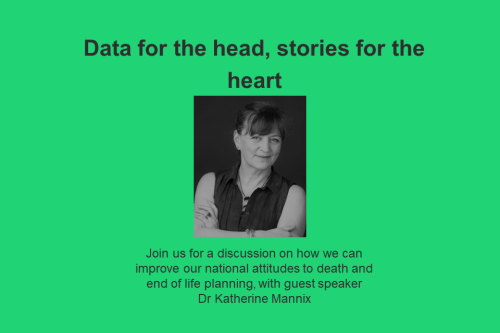
INSIGHT 2021: Data for the head, stories for the heart
Death is certain, yet our planning doesn’t reflect this.

INSIGHT 2021: Data for the head, stories for the heart
Death is certain, yet our planning doesn’t reflect this.
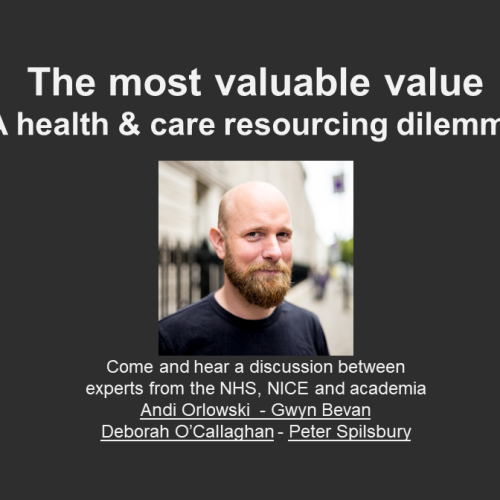
INSIGHT 2021: The most valuable value - a health and care resourcing dilemma
We heard discussions from experts from the NHS, NICE and academia (Andi Orlowski, Gwyn Bevan, Deborah O’

Insight 2021: Sharing your awesomeness!
The session looked at how we can put insight into action through remarkable stories, working with communication teams, spreading your
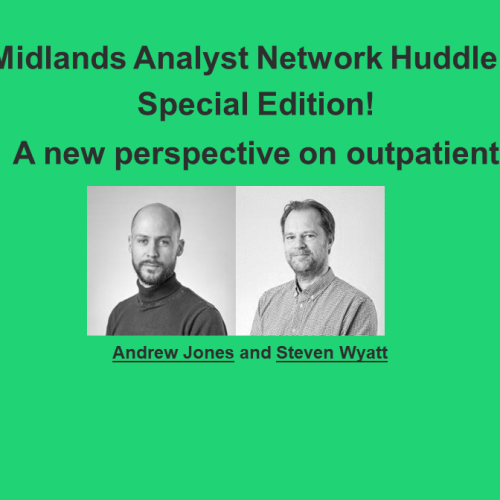
INSIGHT 2021: A new resource to support analysis of outpatient services
In this session, Andrew Jones presented a new classification system designed to enrich analyses of outpatient activity.
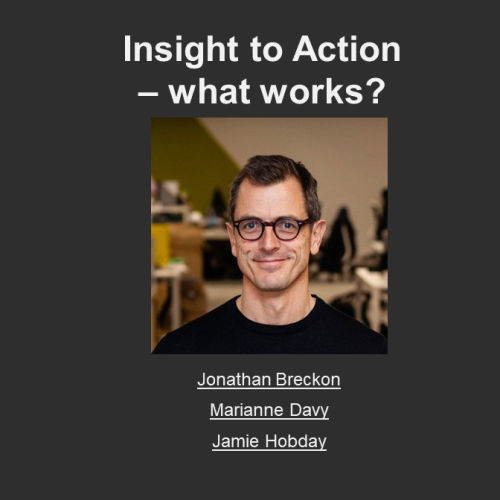
INSIGHT 2021: Insight to Action. What Works?
It has been estimated that it can take up to 17 years to translate evidence into practice – how can we change that?
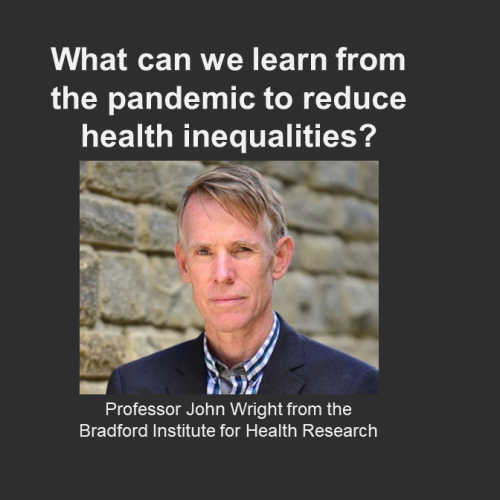
INSIGHT 2021: What can we learn from the pandemic to reduce health inequalities
The COVID pandemic has highlighted the stark inequalities in health that exist in the UK and globally.
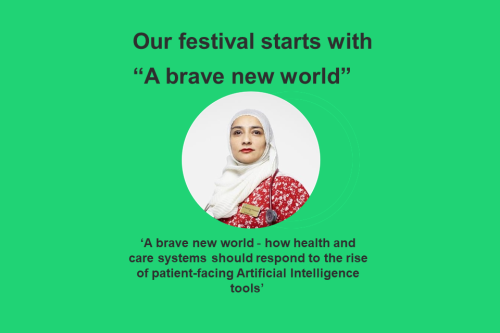
Insight 2021: Welcome to INSIGHT 2021
Peter Spilsbury (Director, Strategy Unit) welcomes you to INSIGHT 2021 and i

Infant feeding problems, lockdown and attendance at Emergency Departments: what’s going on?
From our previous work, with Nuffield Trust and Health Foundation, we know that lockdown had a significant effect on attendance at Emergency Departments (ED). We also know that this effect was very unevenly distributed: some demographic groups stayed away far more than others.

The impact of social care on demand for urgent hospital care: have we reached a consensus?
The care home COVID crisis and the effects of longstanding staffing and funding shortages has meant that social care has featured heavily in the media over the last 12 months.

Decisions to admit patients are not solely determined by clinical risk
Whether or not to admit a patient is one of the most routine yet important decisions a doctor in an Emergency Department

Inequities in children and young people’s mental health services
Good mental health during early years and childhood has a great bearing on health throughout life.

Socio-economic inequalities in access to planned hospital care: causes and consequences
Tacking inequalities in health is a long-standing NHS policy objective. Variation in the experiences and outcomes of different communities during the COVID-19 pandemic served to bring this issue back into focus.

Some positive news for integrating GP practices with hospital trusts
The drive for greater integration of health and care services has been the central theme of UK health policy for most of
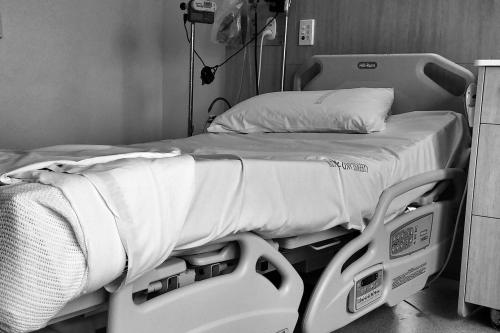
Strategy Unit analysis published showing changes in use of emergency departments under lockdown
We know that patterns of access to healthcare have changed during the pandemic.
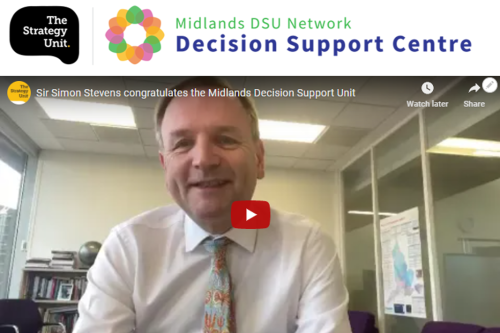
Sir Simon Stevens congratulates the Midlands Decision Support Centre
We’re delighted that Sir Simon Stevens, Chief Executive Officer of the NHS, has recognised the vital role of high-quality analysis.

Health service use in the last two years of life
Health and care services get just one opportunity to support people at the end of their life. When this support is compassionate and appropriate, unnecessary suffering can be avoided and grieving can be eased. When this is not the case, harm and distress can result. The difference in these experiences can be profound.
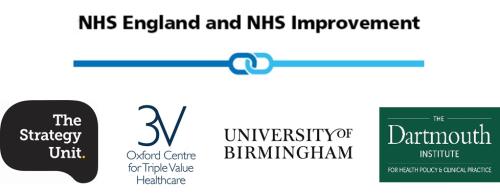
Midlands Population Health Management Academy
The Midlands Population Health Management Academy was part of a programme of support, commissioned by NHS